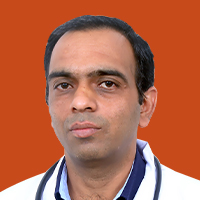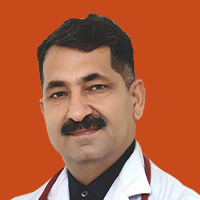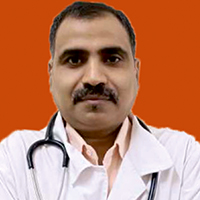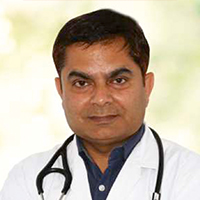

Successful Treatments
Clinics
Doctors
What is Piles?
Anorectal disorders can affect people of all ages, from young infants to seniors. Among all anorectal disorders, Piles, Fistula and Fissure are the most common. Piles, also known as haemorrhoids, are characterised by bleeding & prolapsing of the rectum during defecation. There can be times when the walls with sensitive blood vessels stretch and become irritated and inflamed, leading to discomfort. Piles can occur internally, within the rectum, or externally, around the anus. Fissures are some tears in the anal tract caused when you pass hard, constipated stool. Whereas, Fistula is a pus-filled cavity in the anal pathway. In all anorectal disorders, digestion is a major concern, along with sluggish digestion.
Types of Piles
Piles are categorised into:
Internal Piles
Often go unnoticed as they are not painful due to lack of pain receptors in the rectum. However, when prolapsed, these internal structures, which are usually neglected, are visible outside the anus during defecation, and this may cause discomfort and pain. The most frequent complaint associated with a bowel movement is bright red blood that is streaked on the toilet paper after the defecation process.
External Piles
Located around the anus, these are often painful, especially if they become thrombosed. In such cases, patients may experience severe pain and swelling along with Itching and irritation due to the mucus they secrete. The swelling around the anus is common in this.
Causes of Piles
The causes of piles are multifaceted, involving both lifestyle and physiological factors:
- Increased Abdominal Pressure: Sometimes, physical pressure in hemorrhoidal veins can be caused by straining to have a bowel movement, a sedentary lifestyle, obesity, pregnancy, and heavy lifting.
- Dietary Factors: A diet low in fibre can cause constipation, leading to hard stools and straining, which increases the risk of haemorrhoids. Conversely, excessive intake of spicy and deep-fried foods can exacerbate the symptoms.
- Genetics: A family history of haemorrhoids can predispose individuals to developing piles.
- Ageing: As one age, the tissues that support the veins in your rectum and anus can weaken and stretch, increasing the risk of haemorrhoids.
In Ayurveda, piles are considered to result from the disturbance of any of the three doshas, although it is most commonly linked to the dysfunction of the digestive system and an imbalance in the Vata dosha:
- Vata Type Piles: Dryness and hardness characterise these, causing pain and discomfort.
- Pitta Type Piles: These are associated with inflammation, infections, and bleeding.
- Kapha Type Piles: Characterised by the pile mass being soft and large, with itching and secretion.
Risks & Complications
Piles is a condition that, if not treated properly, may result in several complications, including:
- Severe Anaemia - caused by long-term bleeding from the piles
- Strangulated haemorrhoid, where the blood supply to an internal haemorrhoid is cut off, causing extreme pain and possible infection
- Fistula or breakdown in the tissues around the anus leading to infection
- Ulcerated haemorrhoids that may be painful
When to See a Doctor?
You should consult a certified Ayurveda practitioner if:
- The symptoms do not go away in a week
- You bleed, or the pain is too much
- There is an outward bulging of the haemorrhoid
- When symptoms do not improve with home remedies of piles
Piles Treatment In Ayurveda
Ayurveda does not only cure the piles symptoms but emphasises the restoration of digestive health and balance in the body’s doshas. Here’s how the condition of piles is treated in Ayurveda:
Dietary Adjustments
Fibre-Rich Foods: Incorporate fibre-rich foods like whole grains, leafy greens, and fresh fruits into the diet to soften stools and reduce the straining during bowel movements.
Hydration: Adequate fluid intake is essential. Herbal teas and warm water can help promote digestion and reduce constipation.
Avoiding Trigger Foods: If you have piles, there are certain foods you should keep away from, like spicy food, caffeinated drinks and venturing alcohol because they can aggravate the condition.
Herbal Remedies
Haritaki and Triphala: These herbs are said to stimulate bowel movements and expel waste from the system, especially in postpartum constipation.
Kachnaar Guggul: A traditional remedy for reducing the size of piles and alleviating pain.
Nimba (Neem): It is also used to reduce inflammation and help in curbing infections, this is due to its antiseptic and anti-inflammatory effects.
Lifestyle Modifications
Regular Exercise: Some light exercises or physical activities such as brisk walking as well as yoga may enhance proper circulation of blood, digestion or every other dietary process and would in turn reduce the chances of constipation, which would otherwise lead to the formation of piles.
Proper Hygiene: Keeping the anal area clean can also prevent additional irritation and even infection.
Panchakarma Therapies
Basti (Medicated Enema): This technique is of great significance in piles management through purification of the lower bowel and restoring normal bowel function especially in piles of Vata type.
Jiva’s Evidence-Based Treatment Process
Nadi Pariksha
To begin with, Nadi Pariksha - a traditional pulse diagnosis technique, is used by certified Ayurvedic doctors in Jiva to find imbalances and examine organ health, which is very important in the accurate diagnosis of Piles.
Prakriti Analysis
Understanding your unique physical and psychological pattern allows us to tailor a Piles treatment plan that not only addresses symptoms but aligns with your inherent constitution for lasting health.
Samprapti Ghatak (Pathogenesis)
In our investigations, we examine the if and how Piles is progressing by the dietary, lifestyle, and psychosocial aspects, identifying individual factors for customised intervention and pinpointing specific triggers for targeted treatment.
Chikitsa Sutra - Personalised Treatment Plan
After that, we create a detailed Piles treatment plan, which consists of diet modifications, lifestyle adjustments, herbal medications, and specific therapies that aim to restore dosha balance and renew digestive health.
Continuous Monitoring & Amendments
Continuous tracking of treatment effectiveness allows us to make necessary adjustments, ensuring that you achieve the best results from your personalised Piles treatment plan with Jiva's ongoing support.
What Our Patients Say
87% of patients rate us excellent in service.
78% of patients saw significant improvement in 3 months of treatment.
92% of patients stopped allopathic medicines completely.
FAQs
In order to steer clear of piles, one must ensure a high-fibre diet with an appropriate amount of fruits, vegetables, and whole grains that will relieve them of constipation and thus lessen the need for straining in defecation. Regular exercise, staying hydrated, and managing stress effectively can also minimise the risk of developing piles. Basic preventive measures also involve maintaining proper defecation practices, such as going to the bathroom when one feels an urge to do so and not staying on the toilet seat for long periods.
In Ayurveda, piles are dealt with in a multi-dimensional way that consists of eating habits, herbal treatment, and changing the routine and practice of Panchakarma therapy. Dietary modifications focus on consuming high-fibre foods to ease bowel movements. Herbal treatments might include Triphala, Haritaki, and topical applications of healing pastes. Lifestyle recommendations often involve regular exercise and proper hydration. Panchakarma, like Vasti (medicated enema), is used to cleanse the body and restore balance. The treatment is tailored to the individual’s constitution and the specific characteristics of the piles.
Mild piles may resolve on their own after a few lifestyle changes or some home remedies, but if that does not work and the problem exists even after weeks, then it's high time. You must consult a certified and trusted healthcare practitioner. Ayurveda offers a root-cause-based approach to managing piles, which can lead to improvement or complete resolution.
Spicy foods: These can irritate the digestive tract and worsen symptoms. Oily and fried foods: Heavy foods can aggravate digestion and contribute to constipation. Processed foods: These often contain unhealthy additives and preservatives. Constipating foods: Avoid foods that can lead to constipation, such as red meat, dairy products, and refined grains.
Aloe vera juice: Being known for its healing properties, it can help soothe the digestive tract and reduce inflammation. Wheatgrass juice: Rich in antioxidants, wheatgrass juice can aid in digestion and detoxification. Carrot juice: The carrots are a rich source of fibre and can help regulate bowel movements.
Yes, piles can be more common during pregnancy due to hormonal changes and elevated pressure on the veins in the rectum. It's important for pregnant women to consult with a healthcare professional for appropriate management and prevention of piles.
Top Ayurveda Doctors
Our Happy Patients
Blogs
- Don?t Tolerate Piles Pain & Discomfort Every Day. Do This
- 3 Lessons You Can Learn from Successful Piles Treatment at Jiva
- 6 Home Remedies that will Bring Relief from Piles
- 5 Effective Home Remedies for Piles
- Do You Know The Symptoms of Piles?
- Comprehensive, Root-cause Treatment of Piles
- 5 Easy Steps to Prevent & Control Piles
- 5 Foods to Avoid for Piles
- Fibres - The Ideal Addition to Your Diet for Piles
- 5 tips to Overcome Piles During Pregnancy
Home Remedies
- पेट में गैस, जलन या संक्रमण? इन घरेलू उपायों से पाएं राहत
- पेट में गैस, अपच और फुलाव का आयुर्वेदिक इलाज - मुफ़्त परामर्श
- एनल फिशर से परेशान हैं? ये आयुर्वेदिक नुस्खे देंगे राहत और आराम
- कब्ज़ का आयुर्वेदिक इलाज - मुफ़्त परामर्श
- एसिड रिफ्लक्स का घरेलू इलाज - मुफ़्त आयुर्वेदिक परामर्श
- Food Poisoning का आयुर्वेदिक इलाज - मुफ़्त परामर्श
- क्या बार-बार उल्टी हो रही है? इन घरेलू उपायों से पाएं तुरंत आराम
- क्या आप जानते हैं? इन नुस्खों से पेट दर्द जड़ से खत्म होता है!
- बार-बार एसिडिटी? ये देसी नुस्खे तुरंत देंगे आराम!
- दवा की ज़रूरत नहीं! लूज़ मोशन का रामबाण इलाज घर पर ही
- Home Remedies for Vomiting
- Home Remedies for Piles
- Home Remedies for Food Poisoning
- Home Remedies for Stomach Infection
- Home Remedies for Bloating
- Home Remedies for Anal Fissure
- Home Remedies for Constipation
- Home Remedies for Acid Reflux
- Home Remedies for Acidity
- Home Remedies for Stomach Pain
Related Disease
- Ayurvedic Treatment for Acid Reflux
- Ayurvedic Treatment for Anemia
- Ayurvedic Treatment For Anorexia
- Ayurvedic Treatment for Chronic Fatigue Syndrome
- Ayurvedic Treatment For Gastritis
- Ayurvedic Treatment For Colitis
- Ayurvedic Treatment For Crohn’s Disease
- Ayurvedic Treatment for Weakness and Fatigue
- Ayurvedic Treatment For Flatulence
- Ayurvedic Treatment for Gallstones
- Ayurvedic Treatment for Jaundice
- Ayurvedic Treatment for Liver Cirrhosis
- Ayurvedic Treatment for Sickle Cell Anaemia
- Ayurvedic Treatment For Piles And Fissure
- Ayurvedic Treatment for Irritable Bowel Syndrome (IBS)
- Ayurvedic Treatment For Hyperacidity
- Ayurvedic Treatment for Constipation
- Ayurvedic treatment for Coeliac Disease
- Ayurvedic Treatment for Peptic Ulcer
- Ayurvedic Treatment for Tapeworm
- Ayurvedic Treatment for Typhoid
- Ayurvedic Treatment for Diarrhea
- Ayurvedic Treatment for Diverticulitis
- Ayurvedic Treatment for Pinworms
- Ayurvedic Treatment for Cholera
- Ayurvedic Treatment for Emphysema
- Ayurvedic Treatment for Food Poisoning
- Ayurvedic Treatment for Atherosclerosis
- Ayurvedic Treatment for Thalassemia
- Ayurvedic Treatment for High Triglycerides
- Get Ayurvedic Treatment for Gastroenteritis
Latest Blogs
- Migraine और भोजन का समय: देर से खाना सिरदर्द को क्यों बढ़ा देता है?
- क्या एंटीबायोटिक लेने के बाद पाचन पूरी तरह बिगड़ गया? आयुर्वेद के अनुसार Colitis के उपचार जानें
- अगर मामूली आहार भी पाचन तंत्र सहन न कर पाए तो Colitis को हल्का क्यों नहीं मानना चाहिए? आयुर्वेदिक दृष्टि से जानें
- लंबे समय से सक्रिय Colitis क्यों शरीर की रिकवरी क्षमता को कमज़ोर कर देती है? आयुर्वेदिक नज़र से जानें
- नॉर्मल एंडोस्कोपी, नॉर्मल रिपोर्ट्स… फिर भी रोज़ दर्द—IBS में गलत इलाज कैसे बीमारी को Chronic बना देता है! आयुर्वेदिक उपचार समझें
- क्या बाहर का खाना या मसालेदार भोजन आपके IBS को तुरंत ट्रिगर कर देता है? आयुर्वेदिक दृष्टि से समझें और कब Ayurvedic doctor से मिलना चाहिए जानें
- IBS में दवाइयाँ काम क्यों नहीं करतीं? आयुर्वेदिक कारण और उपचार समझें
- कभी कब्ज़, कभी दस्त: यह सिर्फ पाचन नहीं, पूरे सिस्टम का असंतुलन हो सकता है! जानें कब Ayurvedic doctor से मिलना ज़रूरी हो जाता है
- क्या सर्दियों में दवाइयों के बावजूद साँस पूरी नहीं खुलती? अस्थमा की जड़ आयुर्वेद से समझें
- क्या धूल, धुआँ या परफ्यूम से तुरंत साँस लेने में तकलीफ़ होती है? Asthma के ट्रिगर आयुर्वेद की नज़र से समझें
- सर्दियों में अस्थमा क्यों ज़्यादा बिगड़ जाता है? ठंडी हवा और कफ-वृद्धि का आयुर्वेदिक कारण जानें
- क्या ठंडी हवा लगते ही सीने में जकड़न और साँस लेने में परेशानी होती है? अस्थमा को आयुर्वेद की नज़र से जानें
- क्या सुबह उठते ही बलगम के साथ खाँसी आना अस्थमा का संकेत है? आयुर्वेद से समझें
- क्या लंबे समय तक लैक्सेटिव का उपयोग आपकी कब्ज़ को और जटिल बना रहा है? आयुर्वेदिक समाधान जानें
- क्या गैस, पेट फूलना और सिरदर्द का साथ में होना Chronic Constipation का क्लासिक पैटर्न है? आयुर्वेदिक व्याख्या समझें
- क्या सुबह नींद खुलते ही पेट साफ न होना ‘धीमी अग्नि’ का संकेत है? दीर्घकालिक कब्ज़ में आयुर्वेदिक कारण जानें next topic
- क्या लंबे समय तक बैठकर काम करने से आपकी कब्ज़ लगातार बढ़ रही है? आयुर्वेदिक दृष्टिकोण देखें
- क्या कब्ज़ के चलते आपकी नींद, ऊर्जा और पाचन सब प्रभावित हो रहे हैं? आयुर्वेद में इसके मूल कारण और ज़रूरी उपाय जानें
- क्या तनाव और चिंता भी Chronic Constipation का छुपा हुआ कारण बन सकते हैं? आयुर्वेदिक दृष्टि देखें
- क्या कई दिनों तक कठोर स्टूल बनना और पेट में ऐंठन रहना Chronic Constipation की पहचान है? आयुर्वेदिक संकेत समझें
Ayurvedic Doctor In Top Cities
- Ayurvedic Doctors in Bangalore
- Ayurvedic Doctors in Pune
- Ayurvedic Doctors in Delhi
- Ayurvedic Doctors in Hyderabad
- Ayurvedic Doctors in Indore
- Ayurvedic Doctors in Mumbai
- Ayurvedic Doctors in Lucknow
- Ayurvedic Doctors in Kolkata
- Ayurvedic Doctors in Patna
- Ayurvedic Doctors in Vadodara
- Ayurvedic Doctors in Ahmedabad
- Ayurvedic Doctors in Chandigarh
- Ayurvedic Doctors in Gurugaon
- Ayurvedic Doctors in Jaipur
- Ayurvedic Doctors in Kanpur
- Ayurvedic Doctors in Noida
- Ayurvedic Doctors in Ranchi
- Ayurvedic Doctors in Bhopal
- Ayurvedic Doctors in Ludhiana
- Ayurvedic Doctors in Dehradun









































